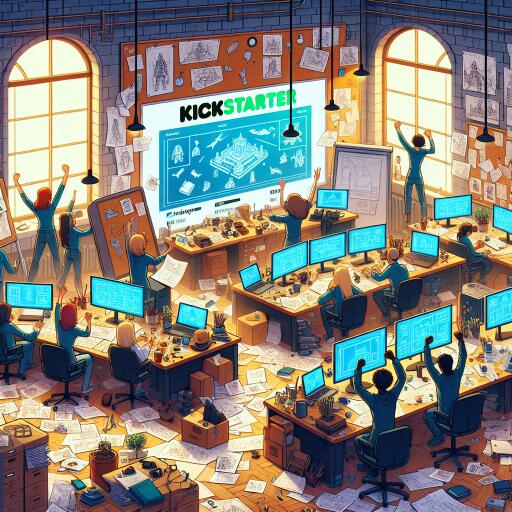Making a Successful Video Game Kickstarter in 2024
Kickstarter has been a beacon for creative projects seeking a shot at life, including video games. While not every game finds its footing through crowdfunding, certain projects have soared, turning their digital dreams into playable realities. In this landscape, understanding the dynamics of a successful Kickstarter campaign is key.
Recent years have seen campaigns like ‘Tales of Seikyu’ and ‘Stormgate’ achieving remarkable funding, highlighting the potential within this space. Despite video games trailing behind tabletop games in crowdfunding success, they remain an essential platform for studios of various sizes. A noteworthy campaign was that of Spilt Milk Studios for their game Trash Goblin, which not only met its goal but provided invaluable insights into the Kickstarter process.
Trash Goblin’s journey was no overnight success. Unlike projects with an existing fanbase, Trash Goblin had to engage and grow its audience over time. This campaign demonstrated the importance of a gradual, consistent effort, necessitating frequent updates and active engagement with potential backers. The final push in the last 48 hours of the campaign, driven by a mix of ‘fear of missing out’ and strategic outreach, significantly boosted their numbers.
From Spilt Milk Studios’ transparent sharing, several takeaways emerged. Among the most crucial lessons was the impact of playable demos. Having a version of the game that backers could experience played a pivotal role in building momentum and credibility. Continuous interaction through updates and leveraging streamers for coverage were also instrumental in crossing the finish line.
Simultaneously, Steam’s Next Fest continues to be a pivotal opportunity for developers to showcase their demos. The shift from a ‘Popular Upcoming’ to a ‘Trending Upcoming’ category, based on recent wishlist counts, indicates a move towards promoting games that generate short-term spikes of interest. This adjustment emphasizes the need for developers to strategically plan their demo releases and marketing efforts to maximize visibility among a sea of competing titles.
The evolution of algorithms governing visibility on platforms like Steam highlights the complexity of the digital game discovery process. Developers are encouraged to be flexible and adaptive, understanding that there’s no one-size-fits-all approach to launching and promoting a demo.
As the gaming landscape continues to evolve, crowdfunding and demo showcases remain vital for indie developers and established studios alike. A successful Kickstarter campaign in 2024 will likely depend on a combination of meaningful community engagement, strategic planning, and the effective use of available platforms like Steam’s Next Fest. Navigating this domain with agility and creativity will be key to turning creative visions into gaming experiences eagerly awaited by players around the globe.
The journey of projects like Trash Goblin serves as a reminder of the potential for success within the crowdfunding model. With dedication, responsiveness, and a keen understanding of the digital environment, creating a successful video game Kickstarter in 2024 is within reach for developers willing to embrace the challenge.









